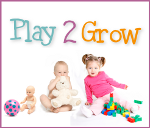The piece of research that I found to share is called the Restoring Childhood Play Project by the Alliance for Childhood. The purpose of this project is to return play to kindergarten and preschool classrooms. This project was created in response to three studies conducted by researchers from U.C.L.A., Long Island University, and the Sarah Lawrence College Child Development Institute. These studies of kindergartens showed that “children in all-day kindergartens were found to spend four to six times as much time being instructed, tested, or prepared for tests (about two to three hours per day) as in free play or “choice time” (30 minutes or less). Classic play materials like blocks, sand and water tables, and props for dramatic play have largely disappeared.” There is a summary of the three studies here.
The project is using several methods to bring play back to classrooms.
1. A campaign to restore creative play and hands-on learning in kindergarten and preschool education.
2. A focus on playwork to help adults learn how to support children's play on school playgrounds and in parks, children's museums, and other out-of-school environments.
3. Outdoor play is an age-old and vital part of childhood, but it has largely vanished. The Alliance is partnering with others to support play in nature.
4. Support for public education efforts in conjunction with the PBS documentary Where Do the Children Play?
5. We maintain an updated list of resources for parents and educators relating to play.
I believe this research is a positive step and will benefit children because we were allowed to play when we were children and today’s children should be able to do the same. Play is essential for learning so many things. If this project is able to bring play back to classrooms, there will be many benefits. Children will be healthier because their physical activity will increase, they will be more interested in the material because it would be developmentally appropriate and in turn, they will perform better academically because they are interested in learning instead of being drilled with letters and numbers. It will be interesting to see how this project progresses.
Here is a video called, “Introduction on Playwork”. One of the things Penny Wilson discusses is taking risks during play which relates to some of our discussions this week.
Finally, they have an interesting link called, play resources which is a link I want to save for future reference. This might be helpful to some of you with your research simulations as well.
Playing Our Way to Culture
1 day ago


Great Post! Thank you so much for sharing this research and video! This is such an important topic as play is slowly disappearing from our Kindergarten and even preschool classrooms. My daughter is currently in Kindergarten. She is reading books, learning about nouns, and many other things. But the one thing I see missing in her daily instruction is PLAY. Play is essential for healthy development. I see children missing out on social concepts and creativity, among many other things when their play is taken away. Again, great post!
ReplyDeleteI think that this project is so important! Play is so important and it is so upsetting that they are taking it out of the schools. I think we need to remind parents and other educators on the importance of play and the skills that it teaches. I was talking to a teacher who said that their school was taking away recess because they had to prove to parents that their half day program was the same as a full day program. As more times goes on, I wonder if there will be a research project that compares children who were able to play to children who were not given the opportunity.
ReplyDelete